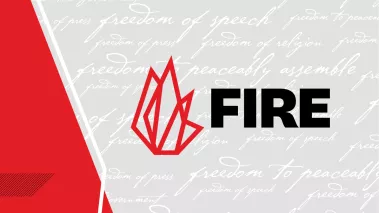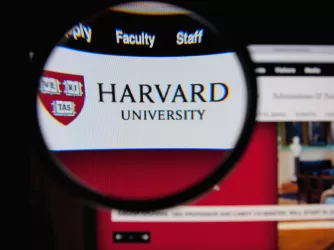Table of Contents
SUNY Fredonia Punishes Professor for Political Expression

BUFFALO, N.Y., July 24, 2006—A professor at the State University of New York, Fredonia (SUNY Fredonia) has been denied promotion for publicly disagreeing with the university’s student conduct policies and affirmative action practices. SUNY Fredonia’s president later agreed to approve the promotion only if the professor would submit all of his public writings to prior university review. Professor Stephen Kershnar declined the offer and sought help from the Foundation for Individual Rights in Education (FIRE).
“Professors must be able to publicly and frankly express their opinions if the ‘marketplace of ideas’ is to survive,” stated FIRE President Greg Lukianoff. “SUNY Fredonia’s bungling attempt to suppress a professor’s criticism of university policies is both reprehensible and embarrassing.”
Kershnar, an associate professor of philosophy, was nominated for promotion to full professor in January 2006, with strong support from his colleagues, department head, and top administrators, because of his outstanding professional record. An outspoken member of the Fredonia community, Kershnar writes a bi-weekly column for the local newspaper, in which he questioned Fredonia’s affirmative action practices and examined the lack of conservatives in higher education. In 2005, Kershnar publicly condemned a new rule that targets students who fail to report violations of the student conduct code. He was quoted in a Buffalo News article saying the new policy would “turn the student population into a group of snitches.”
SUNY Fredonia President Dennis L. Hefner issued a letter to the university community defending the conduct policy against “media misrepresentations.” Kershnar e-mailed the SUNY Fredonia faculty e-mail list on the following day to say that he had criticized—not misrepresented—the policy. Hefner replied to that e-mail by warning Kershnar, “You need to start acting like a responsible member of this campus community.”
On April 27, Hefner sent Kershnar a letter denying his promotion. Hefner explained that although Kershnar’s “teaching has been described as excellent,” he would not be promoted because of his “deliberate and repeated misrepresentations of campus policies and procedures…to the media,” which Hefner claimed “impugned the reputation of SUNY Fredonia.”
Kershnar told FIRE that at a later meeting, Hefner suggested that he would approve the promotion if Kershnar agreed to refrain from such statements in the future. In response, Kershnar drafted a contract to be in effect for one year, during which time he would submit his written materials to a “Prior-Consent Committee,” consisting of two other professors who would decide if his statements deliberately misrepresented the university. Hefner rejected Kershnar’s version of the contract, substituting a more stringent contract that would be in effect for an indefinite period of time, and that required Kershnar to get “unanimous consent” from a university committee for all writing regarding the university to ensure “the avoidance of any future misrepresentations” of campus practices.
“President Hefner should have immediately understood that requiring a professor to submit his opinions to university review flatly violated SUNY Fredonia’s obligations to uphold the First Amendment, but Hefner demanded that Kershnar give up even more of his basic rights,” said Lukianoff.
Kershnar refused to sign this contract and contacted FIRE, which wrote a letter to Hefner on July 7 castigating him for the unjust and illiberal actions against Kershnar. On July 19, Hefner responded to FIRE’s letter, insisting that SUNY Fredonia “takes seriously its legal obligations as a public university,” but refusing to comment on Kershnar’s case. However, on July 20, Hefner sent another letter to Kershnar denying his promotion, this time with the references to misrepresentation removed.
“President Hefner made Kershnar’s academic promotion—which should by all accounts be based upon his merits as a professor—dependent upon his public statements about the university,” Lukianoff stated. “FIRE, along with others who care about academic freedom, will not stand idly by as a public university punishes a professor for speaking his mind and then requires him to relinquish his constitutional and moral right to express his opinions.”
FIRE is a nonprofit educational foundation that unites civil rights and civil liberties leaders, scholars, journalists, and public intellectuals from across the political and ideological spectrum on behalf of individual rights, due process, freedom of expression, academic freedom, and rights of conscience at our nation’s colleges and universities.
CONTACT:
Greg Lukianoff, President, FIRE: 215-717-3473; greg_lukianoff@thefire.org
Dennis L. Hefner, President, SUNY Fredonia: 716-673-3456; hefner@fredonia.edu
John R. Ryan, Chancellor, SUNY: 518-443-5355; chancellor@suny.edu
Recent Articles
FIRE’s award-winning Newsdesk covers the free speech news you need to stay informed.

‘I hate freedom of opinion’ meme leads to sentencing in German court

Revoking Harvard’s tax-exempt status will threaten all nonprofits

Grandpa’s advice for the new wave of American censors
